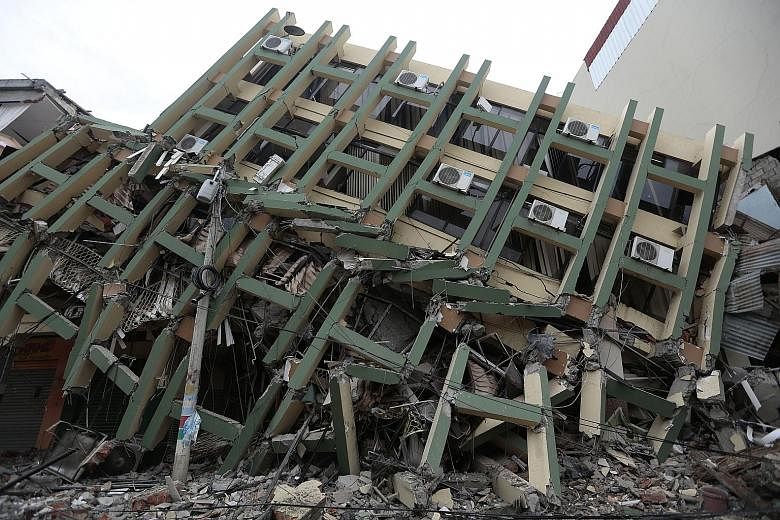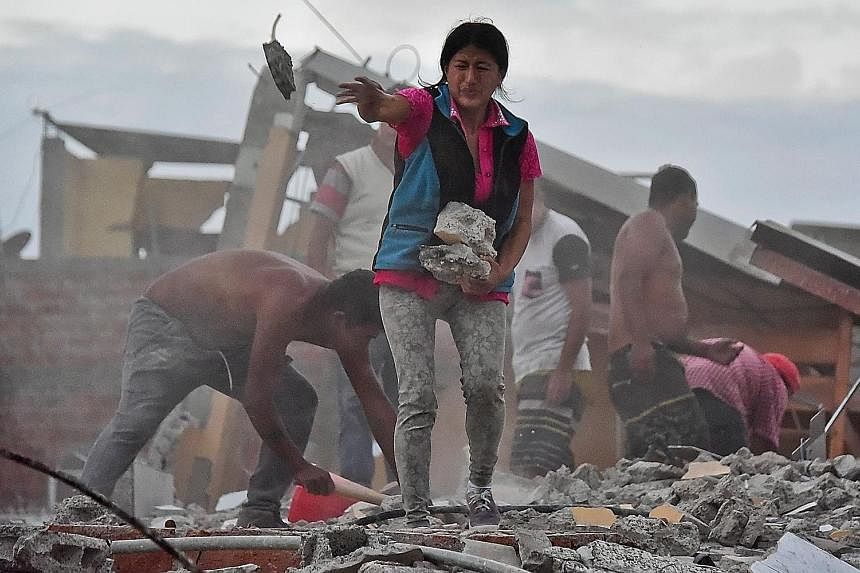PEDERNALES (Ecuador) • During a terrifying five hours trapped in the rubble of her own restaurant, Mrs Filerma Rayo almost lost hope.
"I was yelling and yelling and then, at the end, I started to think I would die there," said Mrs Rayo, 33, as she nursed a crushed foot which had been pinned by a falling piece of concrete when a 7.8-magnitude earthquake shook Ecuador on Saturday.
"It was my siblings who saved us, the rescue teams hadn't arrived yet," said Mrs Rayo, who ran a restaurant on the ground floor of a now-shattered hotel in the worst- hit town of Pedernales.
Her three brothers and sisters, also from Pedernales, came looking for Mrs Rayo and her husband, who suffered head injuries, after the quake. Guided by her shouts, they managed to remove the rubble and pull her out around midnight, well before emergency crews arrived.
Nearly 100 neighbours in Pedernales were not so lucky. They died when the earthquake struck, sending top floors crashing to the ground, punching holes in the facade of the church on the main square and obliterating a local hotel, its roof jack-knifed and crumbling.
More than 600 injured people were treated in tents in the town's still-intact soccer stadium or were transported by ambulance or helicopter to regional hospitals.
Most of the corpses recovered were taken to the stadium and laid out under tents. Only four of 91 had not been identified by families.
Wakes and burials were being quickly arranged. Queues for supplies such as bottled water, blankets and food snaked along the stadium walls as government and Red Cross workers rushed with aid supplies to the hilly area. Residents complained that a lack of electricity was keeping them from using mobile phones to contact loved ones.
Many lost all their possessions. "There's nothing left of the houses and nowhere safe to stay," said Mrs Betty Reyna, 44, who was keeping watch over a dozen members of her family as they slept under a gas station awning yesterday.
"We need everything," she said. "I couldn't even get pain medication at the medical tent."
REUTERS


